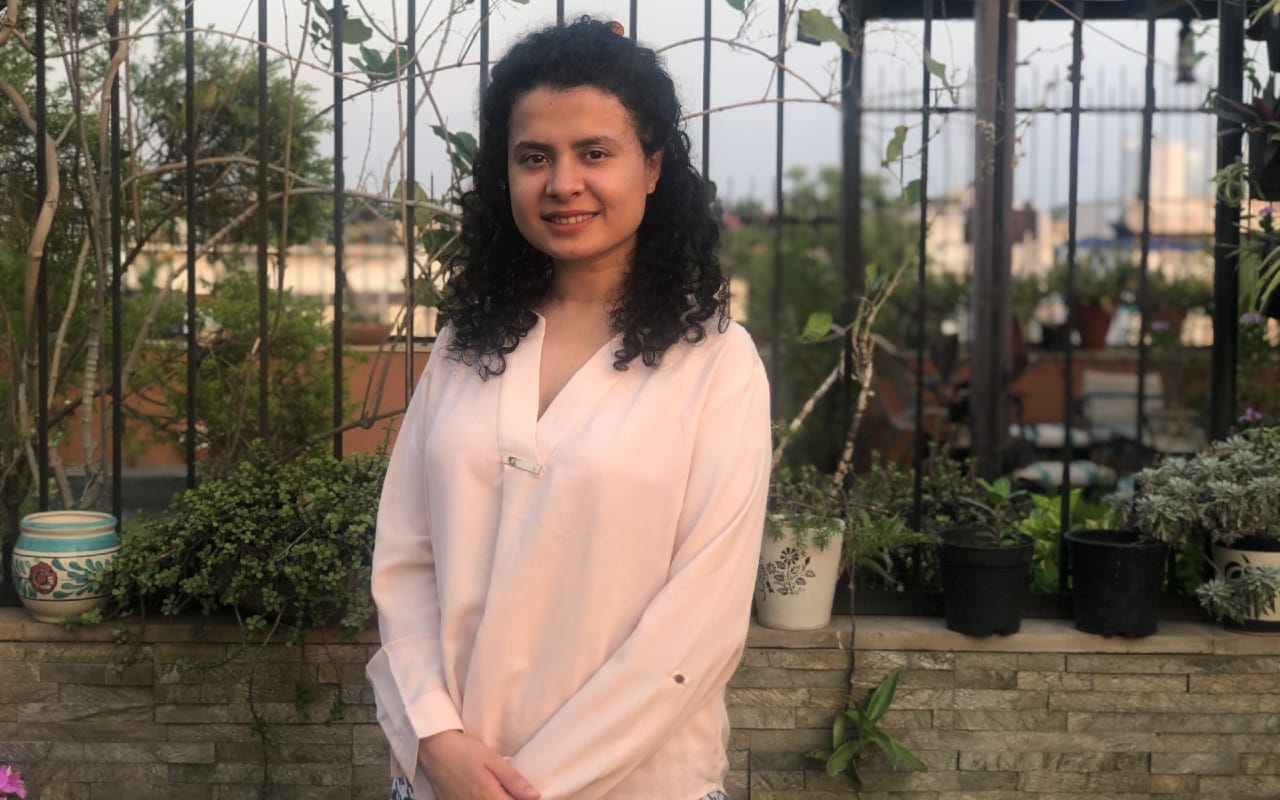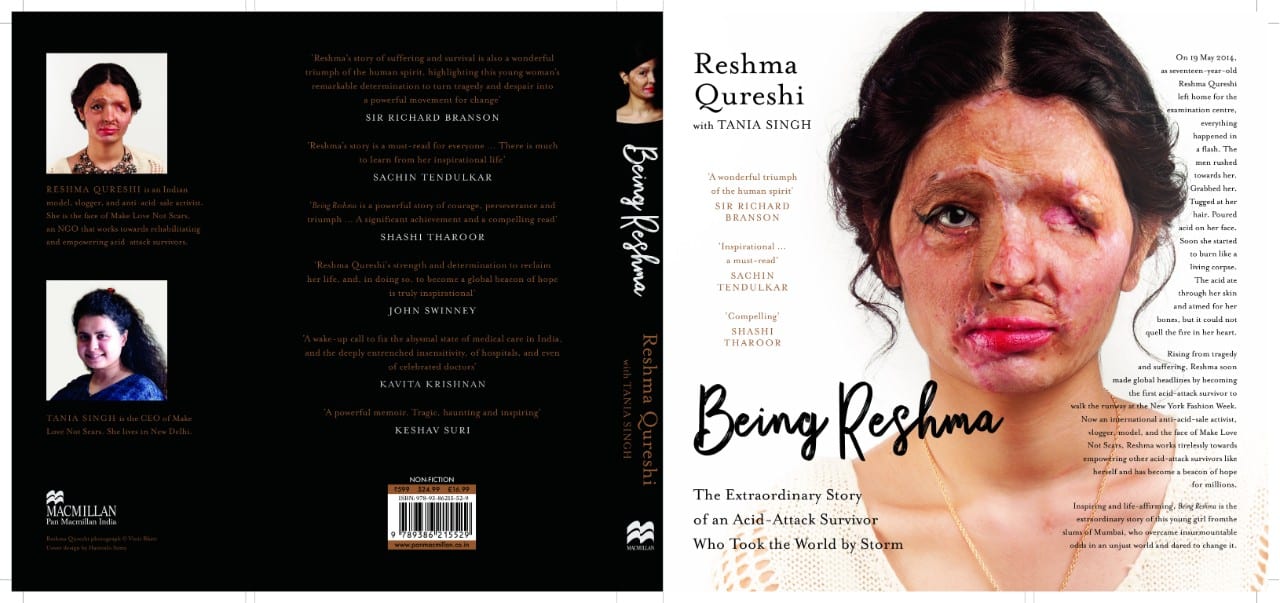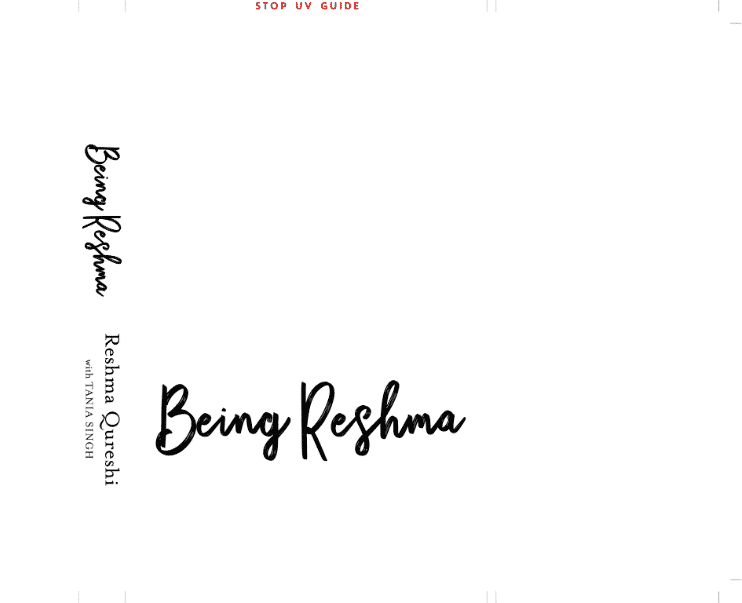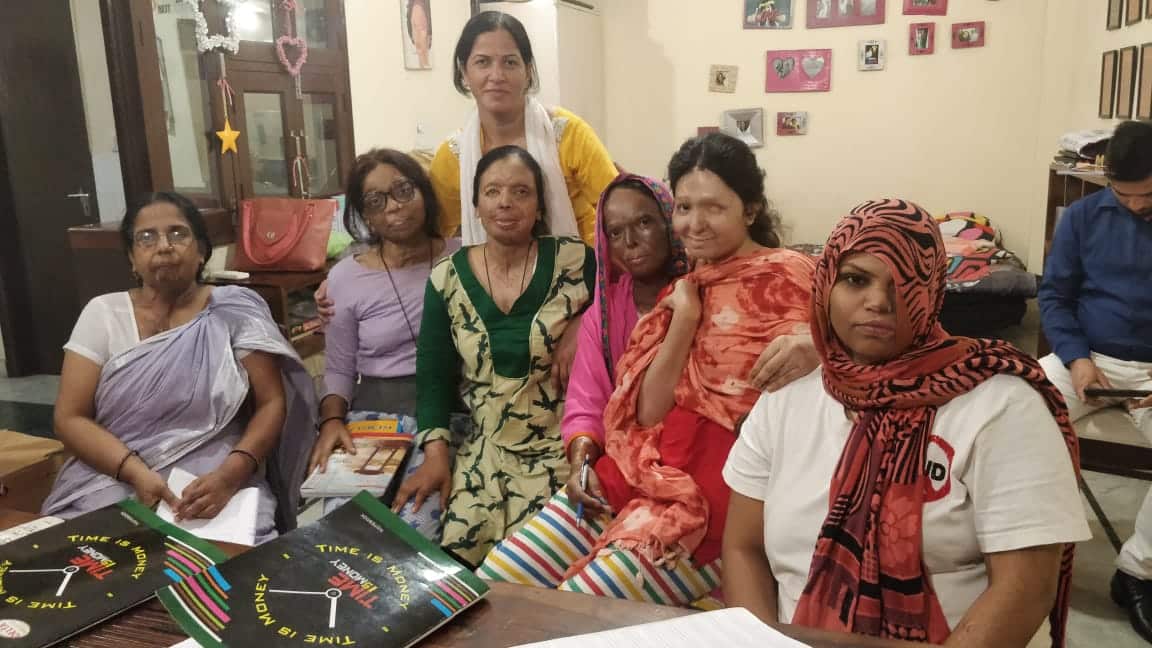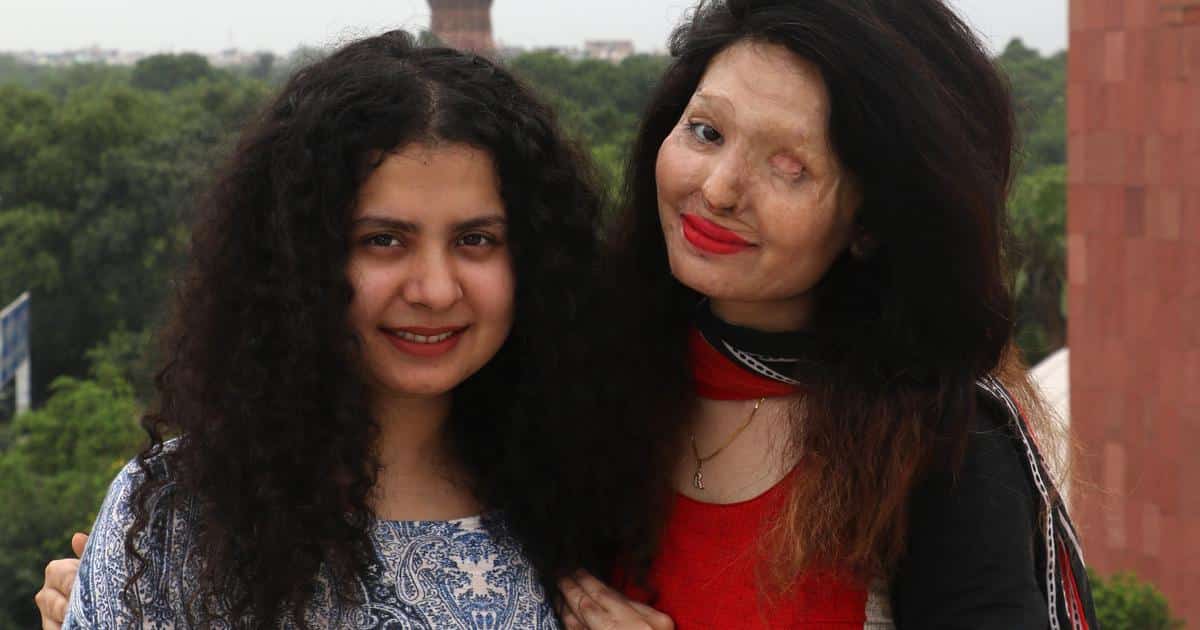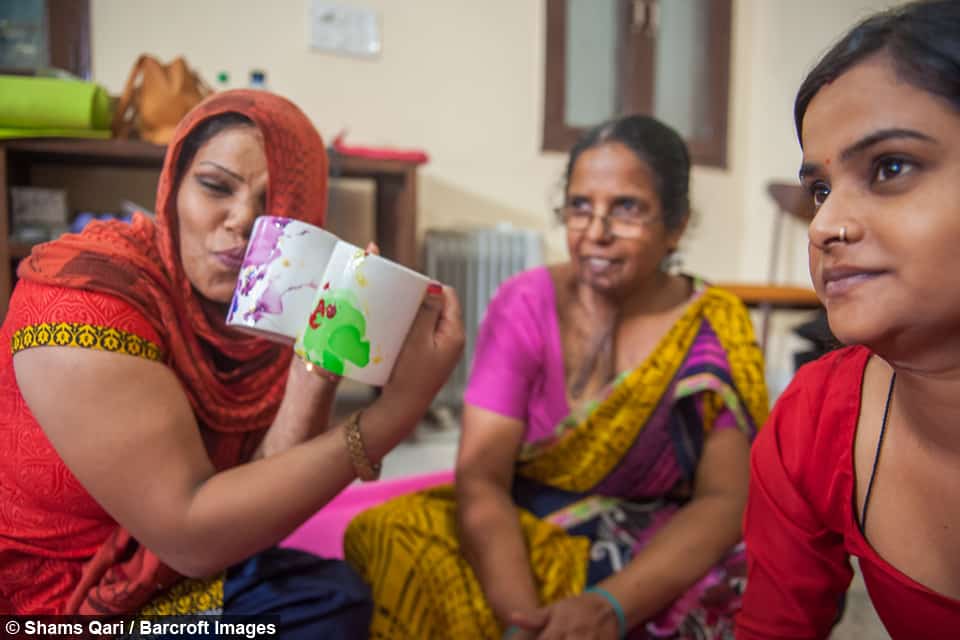It all started when I picked a copy of the book, Being Reshma. Her story truly made me feel things I had never felt before – that of anger, resentment and most of all, helplessness. Helpless that I cannot do anything to make a difference to the lives of these women and children
A couple of days later, when Reshma’s story still did not leave me, I knew I had to do something. I decided to use Marketing In Asia as a platform to highlight this atrocious act that happens all across the globe but one that is very much swept under the carpet.
I got in touch with Tania Singh, the CEO for Make Love Not Scars; she was gracious and grateful. Catch my interview with Tania here, on Marketing In Asia’s Talking Pod.
Tell us all we need to know about Make Love Not Scars, Tania.
Make Love Not Scars is a non-profit organisation that rehabilitates acid attack survivors in India. Our journey started in 2014, and since then we’ve made significant strides in the field. We are the only non-profit in the world to provide a cohesive rehabilitation program of it’s kind for acid attack survivors. We started India’s first residential facility for survivors in 2016 and through this center, we provide aid to survivors for medical, psychological, legal, educational and financial rehabilitation. We have rehabilitated over 100+ acid attack survivors till date.
Apart from working with survivors directly, we also work to raise awareness and campaign to end over-the-counter sale of acid. Be it our #EndAcidSale campaign which garnered over 350,000+ signatures on a petition to end over-the-counter sale of acid or our #SkillsNotScars campaign which aimed to help survivors obtain employment, we have run numerous projects and campaigns to tackle problem-specific areas.
At the end of the day, an acid attack is a very complex crime and unfortunately, we have found that the acid attack itself is not the largest problem faced by the survivors. Medical rehabilitation is, in fact, the easiest part of rehabilitation. What follows before (the constant cycle of abuse and points where the survivor could have been saved before being attacked) and what comes after – the journey to independence for survivors – is the challenging part.
Do you always know you wanted to be an Activist for acid-attack survivors?
I’ll be completely honest here – I had no idea what I wanted to be. While I was at Singapore Management University, I could be best described as a lost soul! I lacked academic maturity, could not connect the dots and knew that I wanted to help make this world a better place but did not know how. I floated through college and felt as though I had hit a wall. “I’ll figure it out,” was my motto when I was asked about my aspirations.
However, I happened to find myself in a fire accident that landed me in Singapore General Hospital. I was undergoing surgeries for months and in my free time, I would often research on the differences in medical facilities between Singapore and India. I was shocked. It was during this research that I first learnt about acid attacks. What started off as being perplexed at the discovery of a crime I had never heard of led me down the path I am on.
I could not understand the level of depravity required to want to corrode away someone’s face. I know I needed to help, in whatever way I could because I could not imagine the pain an acid attack survivor was seared with after an attack. My accident was, in essence, a turning point in my life and the greatest wake up call I have ever received. Initially I just wanted to donate money to the cause, but one thing led to another and here we are!
Who is Tania Singh?
This is a question I have grappled with for years. Ever since my early twenties, I have tried to build my level of self-awareness and from the little that I do know, I can proudly say that I am someone who is not afraid of change. I think far too many people begin to view themselves as an accumulation of certain traits and behaviours and even when they no longer are the people they used to be, they hold on to that version with so much conviction, that they get stuck.
If there is one quote I love, it’s the one that says, “Not all who wander are lost.” I often follow my instinct and I have often had multiple roadblocks. I have struggled to find my place in the world. What my journey has taught me is that I will have multiple versions of myself and that who I am today is not who I will be ten years from now nor who I was a decade ago and that’s okay.
The one truth I have is that I am not afraid of envy. People often think envy is a bad emotion to have, but I think envy shows you the way towards what you most desire and is a gift from the universe. In a way, I always envied the world’s strongest leaders – people who fought for justice and equality – and I wanted to be somebody who embodies that. I am lucky to envy the people I do because they show me the way forward. As for now, I’m someone who loves adventure, wants to make this world a better place and loves trying new things. I get bored with repetitive tasks and love spending hours talking about the ‘what if’s’ and ‘would you rather’! Let’s see if that changes.. it probably will at some point.
You are the author of the memoir, Being Reshma. You depict the story amazingly well; to be honest, I was reading the book with intermittent sobs. Whatever happened to Reshma is so unfathomable to many of us. Tell us her story, Tania.
Thank you! Before we dive into this question, I would like people to understand that while the book Being Reshma is a memoir of one acid attack survivor, it is representative of every acid attack survivor. All the survivors we have worked with have shared more commonalities in their journeys than differences. However, Reshma’s story puts a face to a very common and horrific crime and I hope helps people understand that what she went through is what thousands of women go through.
Reshma was just 17 years old when she was attacked with acid by her brother-in-law and his accomplices. Reshma’s brother-in-law and his family used to torture Reshma’s sister for money. In India, dowry is very common despite being illegal. It is reported that a woman is burnt for dowry with fire or acid every 90 seconds. Reshma’s sister escaped with her children when they were trying to burn her and she later refused to reconcile. In India, revenge is often taken on female members of the family since women are said to hold the ‘honour’ of the family in place. For example, in rural towns, if a man rapes a woman, community based punishment can dictate that the survivor’s male family members can rape a woman related to the man – such as his wife, or sister. There’s a term for this known as ‘revenge rape’ and in essence, a lot of revenge crimes are undertaken on women.
Since Reshma was just 17, unmarried and the youngest girl in the family, her sister’s ex-husband and his accomplices attacked her with acid as a form of revenge.
Reshma’s silver lining unfortunately came from such heinous crime that was done to her. She is the first ever acid-attack survivor to walk the New York Fashion Week. How did that happen and what’s the latest from Reshma?
Reshma is a very strong woman. All survivors are. However, many survivors do not wish to come out in open because they fear social stigma or retaliation by their family members. After all, India is a place where the first question a woman is asked after being abused is “What did you do to make him do that?” This victim blaming is entrenched in society.
Reshma, however, was unafraid of coming out. She was at the forefront of every newspaper, magazine, video and social media discussion on acid attacks. Her videos for #endacidsale has garnered millions of views and been featured globally, including in the New York Times, Huffington Post, Time Magazine and more! It was after her success as a vlogger that she was invited to walk the New York Fashion Week and of course, she accepted.
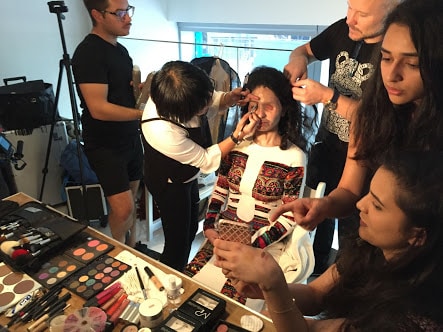
Reshma recently released her memoir and is undergoing surgeries in the United States for a prosthetic eye. These surgeries are being funded by Face Forward Inc – a lovely non-profit organisation that funds reconstructive surgeries in Los Angeles for survivors of domestic abuse and other horrific crimes, including war crimes.
Acid-attack survivors not only hold physical pain but also deep emotional ones. Walk us through the process from the time a victim walks in or being introduced to you till the time she goes back to lead her own independent life, Tania?
Absolutely! As I said earlier, the physical pain (while being one of the worst pains a human being could possibly imagine undergoing) – is actually the least of the problems. Once the burns heal, the survivors are left to grapple with the unwanted changes life has thrown their way. Acid burns through metal, so when it is thrown on flesh, it often leads to disfigurement including loss of eyesight and hearing. From the minute we are introduced to a survivor, we follow the steps below:
- We first assess their medical condition and get them the medical treatment they need. If they need surgeries, the surgeries are funded either in their hometowns ( if they have family support) or in the best private hospitals in New Delhi (if they don’t have the support) and their post-op recovery takes place at our rehabilitation center under trained nurses and amongst the company of other survivors who have overcome the same hurdles. Recovering with the help of other survivors gives each one hope. We fund all transportation, medications and living costs for the survivor during this phase.
- Post medical rehabilitation, survivors begin to realise the significance of the trauma because their minds are no longer focused on just surviving. This is when PTSD, depression, anxiety and suicidal-thoughts begin hampering with their lives. We have weekly therapy sessions – both – private and group based.
- We connect them with pro-bono legal advisors.
- We enroll each survivor in a school, course or skill training program.
- We help connect them with employers and find jobs.
- Once they are earning an independent living, we help them learn how to manage finances and begin living independently in rented accomodation.
- For survivors who have been attacked by their own husbands and who have children to take care of, we enroll the children in private boarding schools to minimise the trauma their children might face.
What is the age range of these girls?
Most attacks take place from late teens to mid-thirties. However, cases range from children to old women. A majority of the cases are from 16-35 since women in this age group are often attacked by scorned lovers and husbands.
Acid attacks are so synonymous with women. Are there any attacks involving boys or men?
Yes. Acid is a weapon and while a majority of cases are women, I would say 80% are women, children and members of the LGBTQ+ community. People are also attacked with acid because of property disputes, gang fights, caste fights, etc.
What are the common excuses attackers give to justify their horrific act, Tania?
I don’t think there ever is a justification strong enough but this is a complex question to answer. When it comes to women being attacked, it’s simply that many Indian men are extremely aggressive and still view women as properties and not individuals with their own rights. Hence, if a woman defies a man’s choice, the man believes it is his prerogative to punish her. This is why a majority of women who are attacked are attacked by men known to them.
In India, what happens to the perpetrators when they are implicated?
The minimum punishment is 10 years’ imprisonment. It can extend up to life imprisonment with fine. Many are let out much earlier on the basis of ‘good behaviour,’ but the truth is that prisons are underfunded and there isn’t enough space for so many inhabitants so to put in more people, many are released on bail.
Globally, which are the countries with the highest numbers of acid attacks, Tania?
The United Kingdom, Pakistan, India, Bangladesh,etc. At the end of the day, acid attacks are one of the most underreported crimes because the nature of the crime is very personal. In the UK, officials believe the real numbers are 10 times higher than what is reported. I don’t even want to imagine the magnitude of underreporting in South Asian and African countries.
That is unbelievable! What is done on the community level to educate the Indian public?
Nothing from the government’s side. However, the media and non-profit organisations try to spread the word. For example, social media pages spread the word and we run various awareness campaigns but the problem is that most of the attacks take place in villages where access to information is scarce. The only way to educate people in these areas is on the ground. I believe the government needs to be more proactive in raising awareness on women’s rights and not just to our generation, but targeted more towards the young children because their minds can still be moulded. If we don’t spread awareness amongst young kids on the importance of gender equality, then we would continue to have the same problems we have today fifty years down the line.
Over the years, what kind of campaigns have been put together for this cause?
So many! Gosh. Walking down memory lane is always such a nostalgic journey. We initially did a series of graphics on ‘A day in the life of an acid attack survivor.’ The message was haunting and really touched people’s lives and helped build empathy for the cause. Our biggest campaign was #EndAcidSale where Reshma did a series of beauty vlogs that ended in a call to action to sign a petition addressed to the Prime Minister of India to end over the counter sale of acid. This petition gained over 350,000+ signatures. We built the world’s first job portal for acid attack survivors through our #SkillsNotScars campaign and traffic was directed to the portal through video CV’s of survivors. The campaign went viral!
Apart from these, two other exciting campaigns that come to mind are the #onceuponadream campaign where survivors dressed up as who they wanted to be when they were kids and talk about who they are now and how they connect the dots. The second is our #powerwalk fashion show in collaboration with Kitty Su at The Lalit Hotel, Barakhamba Road, during which survivors walked the ramp in haute couture donated by designers and these clothes were auctioned to raise funds for their rehabilitation.
Tania, talk to us about the petition for a nationwide ban on the selling of acid to the public in India.
The law states that acid is a controlled substance. Before selling acid to someone, the shopkeeper has to assess numerous factors such as noting down the age, name and identity proof of the buyer. The purpose of purchase also has to be logged in next to the quantity purchased. However, this is not done. Acid is still being sold openly. Recently, an undercover social media video showed actors buying 24 litres of acid in 1 hour. Our petition was aimed to remind the government of the law and as a result, the supreme court of India directed all states to hold a meeting to discuss the steps needed to uphold the law.
You and your team have definitely been a beacon for these acid-attack heroes. Make Love Not Scars campaigns have been accoladed with various international awards. Tell us about that.
It’s been quite a journey. The rewards are just a by-product and not the goal itself and we are truly humbled by them but the truth is that we are an organisation that works on the kindness and generosity of people and companies that collaborate with us and we wouldn’t have received half these awards without the organisations and people we have collaborated with! It’s a shared victory amongst all those who are fighting to end this horrific crime.
For those who wish to know more about Make Love Not Scars, where can they go to?
Instagram, Facebook and LinkedIn.
Any parting words for Marketing In Asia readers, Tania?
Since this is primarily a marketing magazine, I would love to say something about how I approach the marketing operations at Make Love Not Scars. I believe that nowadays, too many marketers are placing far more importance on data than emotion. Everyone has access to the data available and a purely data-driven approach will lead to each company with access to that data creating similar campaigns.
At the end of the day, when it comes to our marketing efforts, I remind myself to look back at the girl who first learnt about acid attacks. What caused me to be here? We try to touch the emotion behind our work and remind ourselves that if we felt emotional and drawn because of certain factors, others might as well. Marketing teams need to reconnect with emotions, feelings and instinct to truly create heartwarming stories because a human touch is what human beings crave most!
Gender Roles In The Workplace











